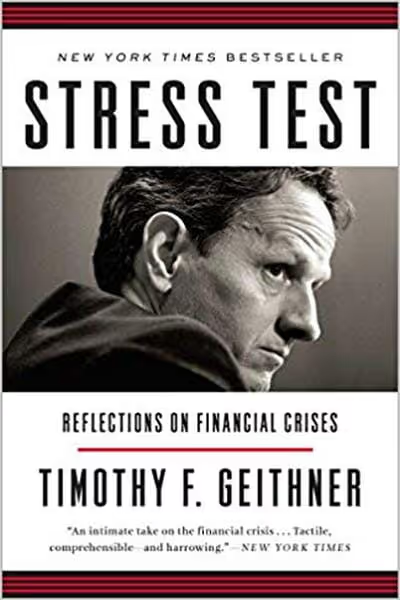Team of Rivals
Acclaimed historian Doris Kearns Goodwin illuminates Lincoln's political genius in this highly original work, as the one-term congressman and prairie lawyer rises from obscurity to prevail over three gifted rivals of national reputation to become president.
On May 18, 1860, William H. Seward, Salmon P. Chase, Edward Bates, and Abraham Lincoln waited in their hometowns for the results from the Republican National Convention in Chicago. When Lincoln emerged as the victor, his rivals were dismayed and angry.
Throughout the turbulent 1850s, each had energetically sought the presidency as the conflict over slavery was leading inexorably to secession and civil war. That Lincoln succeeded, Goodwin demonstrates, was the result of a character that had been forged by experiences that raised him above his more privileged and accomplished rivals. He won because he possessed an extraordinary ability to put himself in the place of other men, to experience what they were feeling, to understand their motives and desires.
It was this capacity that enabled Lincoln as president to bring his disgruntled opponents together, create the most unusual cabinet in history, and marshal their talents to the task of preserving the Union and winning the war.
We view the long, horrifying struggle from the vantage of the White House as Lincoln copes with incompetent generals, hostile congressmen, and his raucous cabinet. He overcomes these obstacles by winning the respect of his former competitors, and in the case of Seward, finds a loyal and crucial friend to see him through.
This brilliant multiple biography is centered on Lincoln's mastery of men and how it shaped the most significant presidency in the nation's history.
The best guide to leading a country
I’m fascinated by Abraham Lincoln. I’ve read a ton about him, and I’ve collected Lincoln-related materials, including a draft of the Emancipation Proclamation and his handwritten copy of the victory speech he gave after being re-elected president. Years ago, I read Doris Kearns Goodwin’s book Team of Rivals: The Political Genius of Abraham Lincoln and was blown away. Of all the books I’ve read about the 16th president of the U.S., Team of Rivals is the best.
Lately I’ve been thinking about Goodwin’s book because it feels very relevant in 2022. There are significant parallels between the current moment and the 1860s, when the nation was dealing with violent insurrection, difficult questions about race, and ideological divides between states and regions. Team of Rivals has a lot of insights about Lincoln that leaders can learn from today.
It is amazing for example to read about how Lincoln was able to push the Thirteenth Amendment through a Congress made up exclusively of white men. Although Lincoln does not have a clean record on race—some modern critics in fact label him a racist because of some positions he held—I came away from Team of Rivals more convinced than ever that Lincoln was a profoundly moral man who ranks as America’s greatest president.
He opposed slavery even as a child growing up in the slave state of Kentucky. As he said in one of his famous debates with Senator Stephen Douglas, someday “all this quibbling about … this race and that race and the other race being inferior” would disappear. And then he was willing to invest everything he had to end slavery when he was elected president.
Lincoln’s private persona was exactly what he conveyed in public. Take for example his conversations with the formerly enslaved leader Frederick Douglass. Lincoln called Douglass “one of the most meritorious men in America” and treated him that way, inviting him to the White House to get his advice. Although Douglass had previously criticized Lincoln’s slowness to act on behalf of enslaved people, Goodwin reports that he was impressed by their long meeting. “The president is a most remarkable man,” Douglass told a friend. “I am satisfied now that he is doing all that circumstances will permit him to do.”
Team of Rivals also gives you a deep appreciation for several other traits that made Lincoln so special. He was secure enough to pack his Cabinet with the rivals he had defeated in the presidential campaign, and he was able to ignore or absorb their backstabbing. Once, War Secretary Edwin Stanton ignored a direct order from Lincoln and called him a “damned fool” behind his back. When he heard about the insult, Lincoln smiled and said, “If Stanton said I was a damned fool, then I must be one, for he is nearly always right, and generally says what he means.”
Lincoln was intellectually secure. Despite having a cumulative total of one year of formal schooling and none of the pedigree that his Cabinet members enjoyed, he never had to prove that he was the smartest guy in the room (even though he almost always was).
Lincoln also controlled his emotions. Because he suffered a lot of loss throughout his life—the death of his mother when he was only 14, the death of two sons, and the carnage he saw on battlefields throughout the war—he was prone to falling into deep melancholy. But his losses fueled his empathy and never left him incapacitated.
Finally, he was great about learning from his mistakes. After the Union Army suffered a humiliating defeat in the first full-scale battle of the Civil War, Lincoln visited with his officers and troops so he could learn first-hand what had gone wrong. Then he stayed up all night “drafting a memo incorporating the painful lessons of Bull Run into a coherent future military policy,” as Goodwin writes.
Whenever I have tried to solve a tough problem, whether it’s in technology or philanthropy, I’ve started by looking for great examples from history. In these turbulent times, Abraham Lincoln is as good a model as you will find.
An adult friend of Lincoln's: "Life was to him a school.”



























































